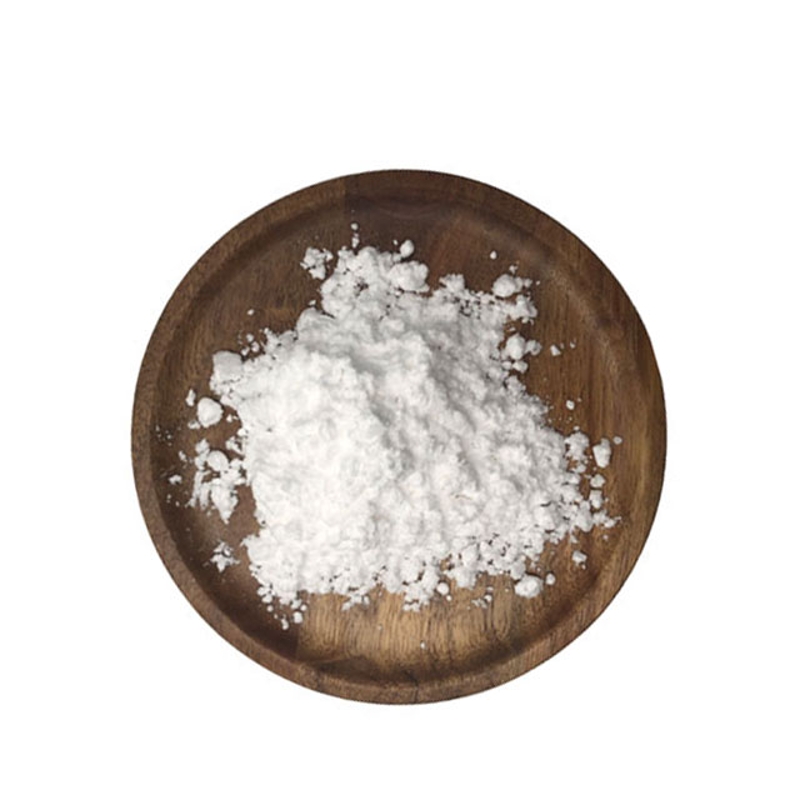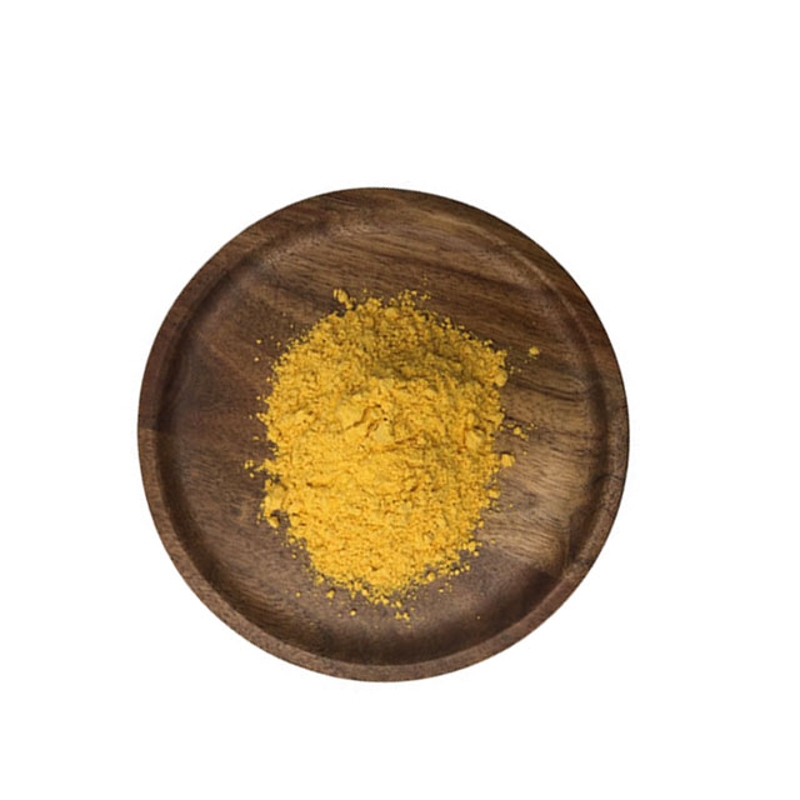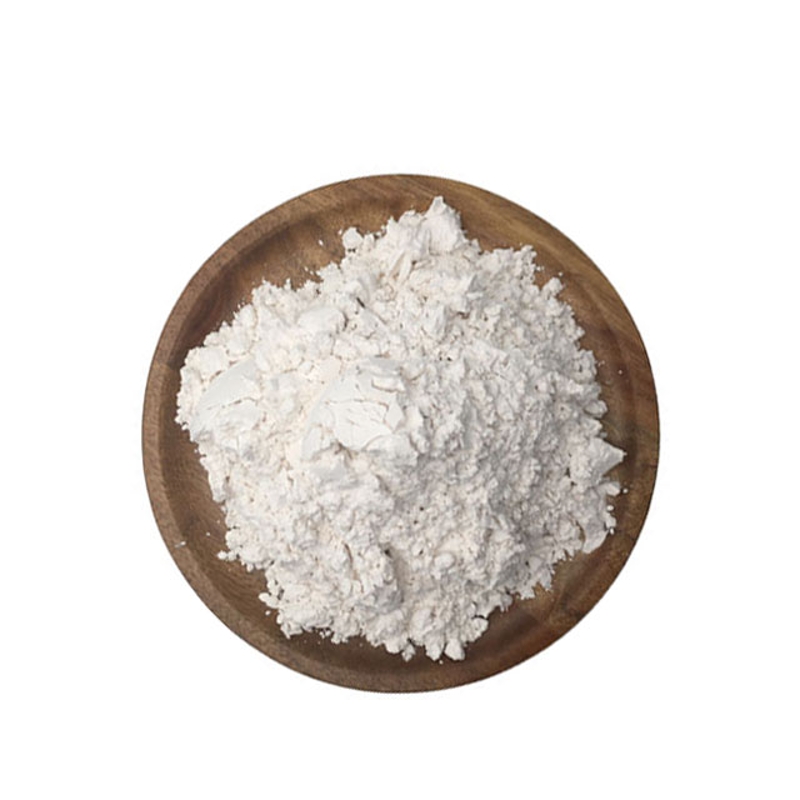-
Categories
-
Pharmaceutical Intermediates
-
Active Pharmaceutical Ingredients
-
Food Additives
- Industrial Coatings
- Agrochemicals
- Dyes and Pigments
- Surfactant
- Flavors and Fragrances
- Chemical Reagents
- Catalyst and Auxiliary
- Natural Products
- Inorganic Chemistry
-
Organic Chemistry
-
Biochemical Engineering
- Analytical Chemistry
- Cosmetic Ingredient
-
Pharmaceutical Intermediates
Promotion
ECHEMI Mall
Wholesale
Weekly Price
Exhibition
News
-
Trade Service
Mantle cell lymphoma (MCL) is a unique subtype of B-cell non-Hodgkin lymphoma (B-NHL) with increasing incidence year on year
Ottolizumab, a new generation of anti-CD20 monoclonal antibodies, was approved by the State Drug Administration of China (NMPA) in June 2021 for the treatment of adult patients
MCL is a relatively rare type of B-NHL with a poor prognosis and is still incurable
Professor Li Zhiming
MCL is a relatively refractory subtype of B-NHL and is overwhelmingly incurable
In 2022, the WHO mainly divided MCL into classical MCL, leukemia-like non-lymphadenopathic MCL and in situ sleeve cell tumors1, of which classical MCL is more common
In addition, the incidence of TP53 mutation in MCL patients is high, and the tumor progresses relatively quickly, prone to drug resistance, early progression, etc.
Professor Jing Hongmei
The Department of Hematology of the Third Hospital of Beijing Medical University has established an MCL data platform in northern China, and data analysis shows that compared with the past, the survival time of MCL patients has been significantly longer, but most patients may still face the dilemma
There are more treatment options after the recurrence of high-risk MCL patients than those of initial treatment, but there is no standard treatment plan, and many clinical discussions have been carried out, such as chemotherapy-sensitive patients, if they relapse after first-line treatment for a long time, the same chemotherapy regimen may continue to benefit, but if the patient is an early relapse, the new targeted therapy drug may be a better choice
In the era of new drugs, otolizumab as an innovative mechanism of anti-CD20 monoclonal antibody, can you please talk about the advantages of otolizumab in the field of MCL?
Professor Li Zhiming
Today, anti-CD20 monoclonal antibody is still the cornerstone of MCL treatment, and the Chinese Society of Clinical Oncology (CSCO) lymphoma diagnosis and treatment guidelines for patients with new treatment of MCL and patients with relapse and refractory treatment, the anti-CD20 monoclonal antibody combination regimen is preferred
Otolizumab is the world's first humanized, glycosylated type II anti-CD20 monoclonal antibody, which can bring new hope to
Compared with type I rituximab, otolizumab binds to CD20 receptors in different sequences, different binding methods, and different mechanisms for killing tumors
Notably, patients with MCL who are rituximab-resistant can still benefit
Based on an innovative mechanism of action, otolizumab can overcome the mechanism of rituximab resistance or inadequate
Medical Pulse: At present, otolizumab has been listed in China for one year, can you please talk about the joint treatment of otolizumab in the field of MCL first-line treatment?
Professor Li Zhiming
In MCL first-line therapy, the previous rituximab (R) combined with chemotherapy regimen had limited remission, and the CR rates of the R-chemo regimen and the R-lenalidomide regimen were only 55% to 72% 7,8
.
Based on the innovative mechanism of otolizumab, stronger DCD and ADCC effects, and stronger MCL cell killing ability, the new combination regimen containing otolizumab is expected to bring deeper relief
to patients with initial treatment of MCL.
LyMa-101 Study 9 is the first clinical study to apply otolizumab + high-dose cytarabine chemotherapy as the first-line treatment regimen for MCL, and explores the efficacy and safety
of otolizumab + dexamethasone + cisplatin + cytarabine (G-DHAP) regimen in the first-line treatment of MCL that meets the conditions of transplantation.
The primary endpoint of the study was THE MRD-negative rate
in the bone marrow after 4 cycles of combined therapy.
The results showed that at the end of induction therapy, 92% (78/85) of patients achieved remission, 79% (67/85) of patients achieved CR, PFS rates and OS rates at 12 months were 94% and 96%, respectively, and bone marrow MRD negative rates reached 75%, which was better than other commonly used regimens
in the past.
G-DHAP was similar to the adverse events and serious adverse events reported by R-DHAP, with no treatment-related deaths occurring
.
The G-DHAP regimen is considerable and safe, and is a new choice
for first-line induction therapy in MCL patients who meet the conditions for transplantation.
In addition to the G-DHAP regimen, otolizumab combined with chemotherapy regimens has been explored in otularizumab plus bendamustine (GB) regimens (under study recruitment) and GB+ targeted drug regimens
.
The overall response rate (ORR) of otolizumab + bendamustine + venequera (BOV) regimen for the treatment of MCL in the first treatment reached 100%, the CR rate was higher, and the patient was well tolerated10
.
The treatment regimen of otolizumab combined with BTK inhibitors, BCL-2 inhibitors and other targeted drugs has also been explored
in the treatment of MCL in the initial treatment.
A prospective, multicenter, non-randomized, Phase I.
/II clinical study, the OAsIs study, explored the efficacy and safety of the combined regimen of otolizumab + ibutinib + venequera11,12, and all assessable PATIENTS had negative peripheral blood and bone marrow MRD after the end of 6 cycles of treatment, with 1-year PFS rates and OS rates of 93.
3% and 100%,
respectively.
The tri-drug combination provides survival benefits, high remission, good tolerance, and low
incidence of adverse effects in patients with initial MCL.
Since MCL with TP53 mutation is associated with poor prognosis of immunotherapy, and there is no standard regimen for first-line therapy, shine studies have shown that BR+ ibutinib has no significant benefit from PFS in high-risk populations with TP53 mutations, and otularizumab is more lethal than rituximab, and the researchers explored the efficacy of otularizumab + zebutinib + venequera (BOVen) in patients with TP53 mutation in the initial treatment of MCL13
。
BOVen regimen for 28D cycles (otolizumab, 1000 mg, C1: D1, D8, D15; C2-8:D1; Zebutinib, C1 starting, 160 mg bid; Venequera, starting from C3, 5 weeks climb to 400 mg qd), total 24 cycles (2 years).
After 24 cycles, if the patient achieves CR and bone marrow MRD negative, follow-up treatment is not received, but CR/bone marrow MRD needs to be monitored, and zebutinib plus veneercora is continued after recurrence; If the patient does not reach CR and/or MRD positivity, continue zebutinib in combination with veneercora maintenance therapy
.
Preliminary results from median follow-up for 4 months showed that the regimen was highly therapeutically active and well tolerated, with an ORR of 90% (9/10) after 3 cycles
of treatment.
Due to the biological and clinical heterogeneity of MCL, the combination of single drug/two drugs and three drugs still needs further exploration
in terms of efficacy or clinical application.
A study presented at the ASH conference last year showed that the fixed-course five-drug combination regimen ViPOR (veneclerra, ibutinib, prednisone, otolizumab, lenalidomide) had a good safety profile in treating patients with initial treatment and R/R MCL14 Neolysis syndrome did not occur, and high antitumor activity was shown, no maintenance regimen was required to induce persistent CR, 100% of the 11 patients with assessable efficacy, 9 patients had a lasting response time of 0.
4 to 18.
6 months, and 8 patients with assessable peripheral blood MRD achieved peripheral blood MRD negative
at the end of treatment.
Based on the above research results, many studies have only replaced rituximab in the commonly used clinical treatment regimen with otolizumab, which has achieved better efficacy, and the joint program of otolizumab is worth further exploration and promotion
in the future.
In the era of new drugs, the new combination scheme of otolizumab and other drugs has brought more treatment options for newly treated MCL patients and more hope
for patient survival.
What do you think otolizumab plays in the clinical treatment of R/R MCLs?
Professor Jing Hongmei
After the marketing of otozumab, it has brought good treatment options for rituximab-resistant and relapsed refractory (R/R) MCL patients, clinical studies have shown that the efficacy of otularizumab monotherapy R/R MCL is encouraging, a well-known GAUGUIN study showed 15, otularizumab monotherapy 1600/800 mg dosage regimen has encouraging activity in R/R MCL and has acceptable safety, The most common adverse event was an infusion-related reaction (IRR), but it was manageable
.
At the same time, the combination of otolizumab with other drugs also shows therapeutic potential
.
The efficacy and safety of the combined otolizumab + ibutinib + venequera regimen16 were explored in the OAsIs study, and the results showed that the regimen showed an efficient response in patients with R/R MCL, providing an early and high proportion of MRD-negative rates and CR rates
for patients with R/R MCL.
In addition, otolizumab can also be used as a bridging therapy before CAR-T, and our center has tried to apply
it in some patients with R/R MCL.
Some MCL patients due to rapid progression after the recurrence of the disease, can not directly receive CAR-T treatment, our center in nearly 20 cases of R / R MCL patients, otolizumab combined with BCL-2 inhibitors, immunomodulators, BTK inhibitors and glucocorticoids as a bridging program before CAR-T treatment, has achieved a more ideal effect, so that this part of the patients once again to achieve remission, greatly reduced the tumor load, smooth car-T treatment, For patients with more survival benefits, rituximab-resistant patients also have better efficacy
after otolizumab.
For patients with large tumor burden, our center first gives otolizumab induction therapy program, reduces part of the tumor burden of patients and then applies other drugs to avoid tumor lysis syndrome
.
Medical Pulse: What do you think is the prospect of otolizumab in the field of MCL, and what other research directions are worth exploring in the field of MCL in the future?
Professor Li Zhiming
Anti-CD20 monoclonal antibody is the cornerstone of MCL therapy, and the program of otolizumab combined with targeted drugs and cellular immunotherapy has good development prospects
in both the initial treatment of MCL and R/R MCL.
In the future, in the first-line treatment of MCL, some patients can even use chemotherapy-free regimens, and patients with R/R MCL can also use anti-CD20 monoclonal antibody combined with targeted therapy regimens to achieve deeper remission and reduce toxicity
.
The combined regimen of otolizumab is expected to achieve deeper, longer-lasting remissions and more survival benefits
for patients.
Professor Jing Hongmei
Individualized therapy, that is, the selection of a combination of different drugs based on the abnormalities of the patient's own molecular biology, is the future development trend
.
At present, there are many research data showing that otolizumab has considerable efficacy in MCL, and its treatment regimen combined with other targeted drugs is very promising
in R/R MCL.
Otolizumab has certain advantages in terms of efficacy and economy, and as a maintenance treatment for MCL, it can bring more benefits
to patients.
It is expected that more otolizumab will be applied to MCL research in the future, benefiting more patients with
MCL.
Expert Profiles
Professor Li Zhiming
Professor, Chief Physician, Doctoral Supervisor, Cancer Prevention and Control Center, Sun Yat-sen University
Chairman of the Lymphoma Professional Committee of Guangdong Anti-Cancer Association
Standing Director of youth council of China Anti-Cancer Association
Deputy Secretary-General and Standing Committee Member of the Anti-Lymphoma Alliance of the Chinese Society of Clinical Oncology (CSCO).
Member of the Standing Committee of the Lymphoma Professional Committee of the Chinese Anti-Cancer Association
Secretary-General and Standing Committee Member of the Lymphoma Professional Committee of the China Geriatric Health Care Association
Vice Chairman of the Youth Committee of the Lymphoma Professional Committee of the Chinese Anti-Cancer Association
Vice Chairman of the Youth Committee of the Oncologist Branch of the Chinese Medical Doctor Association
Member of the Standing Committee of the Head and Neck Oncology Expert Committee of the Chinese Society of Clinical Oncology (CSCO).
Member of the Standing Committee of the Lymphoma Branch of the Chinese Medical Education Association
Deputy Leader of the Central Nervous System Lymphoma Group of the Neuro-Oncology Professional Committee of the Chinese Anti-Cancer Association
Vice Chairman of the Targeted and Individualized Therapy Professional Committee of Guangdong Anti-Cancer Association
Vice Chairman of tumor immunology professional committee of Guangdong Association of Integrative Traditional and Western Medicine
Vice Chairman of fertility protection professional committee of Guangdong Health Management Society
Member of the Standing Committee of the Chemotherapy Professional Committee of Guangdong Anti-Cancer Association
Member of the Standing Committee of the Throat Tumor Professional Committee of the Guangdong Clinical Medical Association
Member of the Nasopharyngeal Cancer Professional Committee of Guangdong Anti-Cancer Association
Vice Chairman of the Lymphoma Professional Committee of Guangzhou Anti-Cancer Association
Jing Hongmei Professor
- Chief physician, professor, doctoral supervisor, director of the Department of Hematology, Peking University Third Hospital
- Director of the Joint R&D Center for CAR-T Cell Therapy, Peking University Third Hospital
- Chairman of the Hematology and Tumor Committee of the Beijing Society of Integrative Medicine
- Vice Chairman of the Oncology Expert Committee of the Chinese Association of Women Physicians
- Vice Chairman of the Lymphoma Committee of China Medical Education Association
- Vice Chairman of the Youth Committee of the Blood Branch of the China Medical Education Association
- Member of the Standing Committee of the Geriatric Oncology Professional Committee of the Chinese Gerontological Society
- Member of the Diagnostics Group of the Blood Branch of the Chinese Medical Association
- Member of the Blood Branch of the Chinese Medical Doctor Association
- Specialty: Tumors of the lymphatic system
References: (Swipe up to view)
1.
Rita Alaggio, et al.
The 5th edition of the World Health Organization Classification of Haematolymphoid Tumours: Lymphoid Neoplasms.
Leukemia 36, 1720–1748 (2022).
2.
Mössner E, et al.
Blood 2010; 115:4393–4022.
3.
Heinrich DA, et al.
Br J Haematol.
2015 Feb; 168(4):606-10.
4.
Rudolph C, et al.
Cancer Genet Cytogenet.
2004 Sep; 153(2):144-50.
5.
Herter S, et al.
Mol Cancer Ther 2013; 12:2031–423.
6.
Golay J, et al.
Blood 2013; 122:3482–91.
7.
Hermine O, et al.
Lancet.
2016 Aug 6; 388(10044):565-75.
8.
Merli F, et al.
Br J Haematol.
2012 Feb; 156(3):346-53.
9.
Steven Le Gouill, et al.
Lancet Haematol.
2020; 7(11):e798-e807.
10.
Irl Brian Greenwell, et al.
2020 ASH Abstract #1131
11.
Le Gouill S, et al.
Blood.
2021 Feb 18; 137(7):877-887.
12.
Steven Le Gouill, et al.
2020 EHA abstract S228.
13.
Anita Kumar,et al.
2021 ASH Abstract No.
3540
14.
Christopher Melani,et al.
ASH 2021 Abstract No.
3537
15.
Morschhauser FA, et al.
J Clin Oncol .
2013 Aug 10; 31(23):2912-9
16.
Le Gouill S, et al.
Blood.
2021 Feb 18; 137(7):877-887.
Edit: Chole
Reviewer: Evelyn
Typography: Uni
Execution: Uni
ENDPoke "Read the original article" to see more







